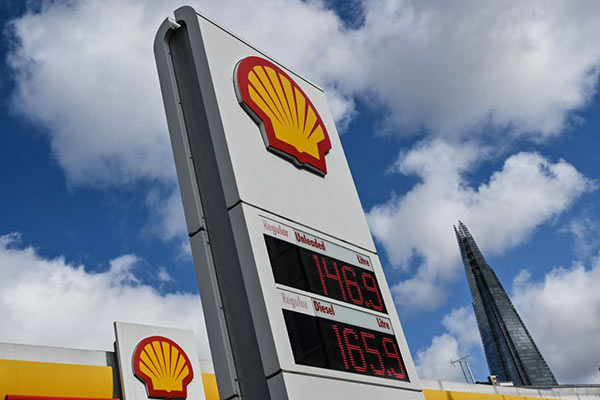Shell’s dividend plan is great news for income seekers
14th June 2023 13:03
by Graeme Evans from interactive investor
The oil major can easily afford to return more cash to shareholders, and that’s just what it plans to do. Here’s what new chief executive Wael Sawan told investors today.

The post-pandemic rebuild of the Shell (LSE:SHEL) dividend continued today as new boss Wael Sawan set out plans for a 15% increase alongside his wider review of the oil giant’s strategy.
In a presentation to analysts and investors in New York, Sawan said shareholder distributions would be increased to 30-40% of cash flow from operations through the cycle. This is up from 20-30% previously and in line with City expectations.
- Invest with ii: Top UK Shares | Share Tips & Ideas | Open a Trading Account
Shell's dividend from first-quarter trading is due to be paid on 26 June and amounts to $0.2875 (22.99p based on the 5 June conversion rate), compared with $0.47 before the pandemic caused the first cut in the award since the Second World War.
That 66% reduction rebased the dividend to $0.16, but since then cash flows have been given a significant boost from last year’s surge in oil prices to over $100 a barrel.
Sawan’s planned 15% increase to around $0.33 is due to be confirmed alongside second-quarter results on 27 July and will be distributed to shareholders on 18 September.
As we reported last week, analysts believe Shell can easily afford to rebase its dividend given that free cash flow covers the ordinary dividend policy down to $30 a barrel.
However, two decades of huge gyrations in oil price and the need to avoid a repeat of the April 2020 shock means no shift to Shell’s usual conservative approach.
- The Income Investor: buy these unpopular shares for high yield and growth
- Vodafone and Three finally agree to UK merger
- This FTSE 100 bank share could be worth 50% more
- Five of AIM’s most attractive dividend stocks
The oil giant also today put a floor of $5 billion for share buybacks over the second half of the financial year, but this is a slower rate than the $4 billion first quarter programme.
Sawan said the shareholder distributions will be underpinned by an enhanced focus on performance and stronger capital and spending discipline, including a structural reduction in operating costs of $2-3 billion by the end of 2025.
A new capital expenditure target of $22-25 billion a year for 2024 and 2025 is down from the current range of $23-27 billion and below the City consensus of $25.6 billion.
The company will also seek to bolster cash flows by extending its “advantaged position” in upstream operations.
This new pledge to stabilise liquids production up to 2030, rather than the cut of 1%-2% a year originally proposed, will prove controversial after BP also took a step back from its previous low carbon commitments.
However, Shell points out it is making good progress towards its target to become a net-zero emissions energy business by 2050, which includes reduced emissions from its operations and from the fuels and other energy products it sells to customers.
- The FTSE 100 dividend stocks handing £10bn to shareholders in June
- Two massive names but I’d only buy shares in one of them
- Insider: bosses buy FTSE 250 shares heading in opposite directions
- Share Sleuth: why I picked this share out of eight contenders
Sawan said today that the company planned to invest $10-15 billion across 2023 to 2025 in order to support the development of low-carbon energy solutions including biofuels, hydrogen, electric vehicle charging and carbon capture storage.
He added: “We are investing to provide the secure energy customers need today and for a long time to come, while transforming Shell to win in a low-carbon future.
“Performance, discipline, and simplification will be our guiding principles as we allocate capital to enhance shareholder distributions, while enabling the energy transition.”
Shares rose 40.5p to 2336.5p in a session when BP (LSE:BP.) shares were also more than 1% higher.
UBS, which has a Shell price target of 2,750p, said it viewed the update positively with the main surprise concerning the cut in capital expenditure.
These articles are provided for information purposes only. Occasionally, an opinion about whether to buy or sell a specific investment may be provided by third parties. The content is not intended to be a personal recommendation to buy or sell any financial instrument or product, or to adopt any investment strategy as it is not provided based on an assessment of your investing knowledge and experience, your financial situation or your investment objectives. The value of your investments, and the income derived from them, may go down as well as up. You may not get back all the money that you invest. The investments referred to in this article may not be suitable for all investors, and if in doubt, an investor should seek advice from a qualified investment adviser.
Full performance can be found on the company or index summary page on the interactive investor website. Simply click on the company's or index name highlighted in the article.